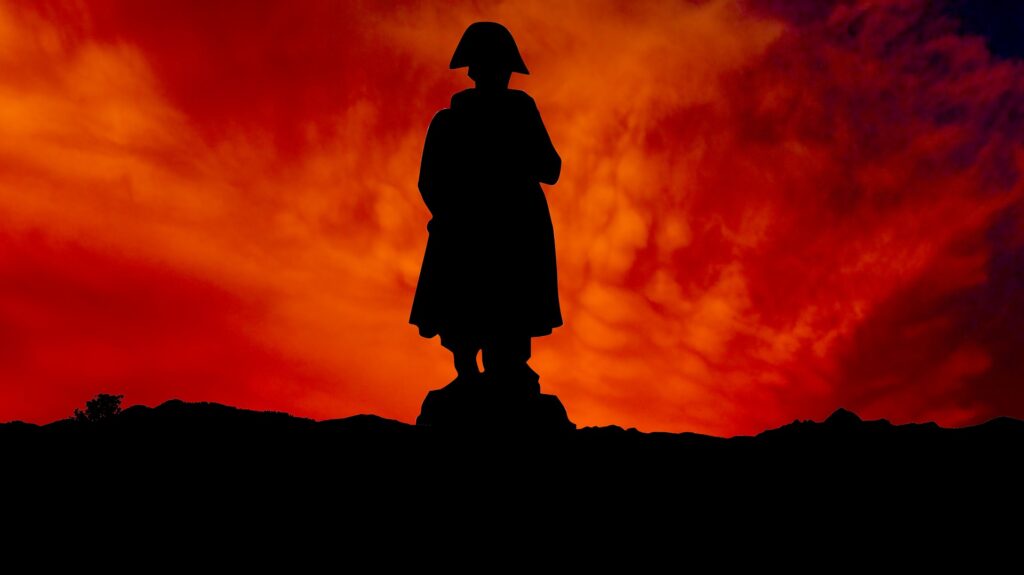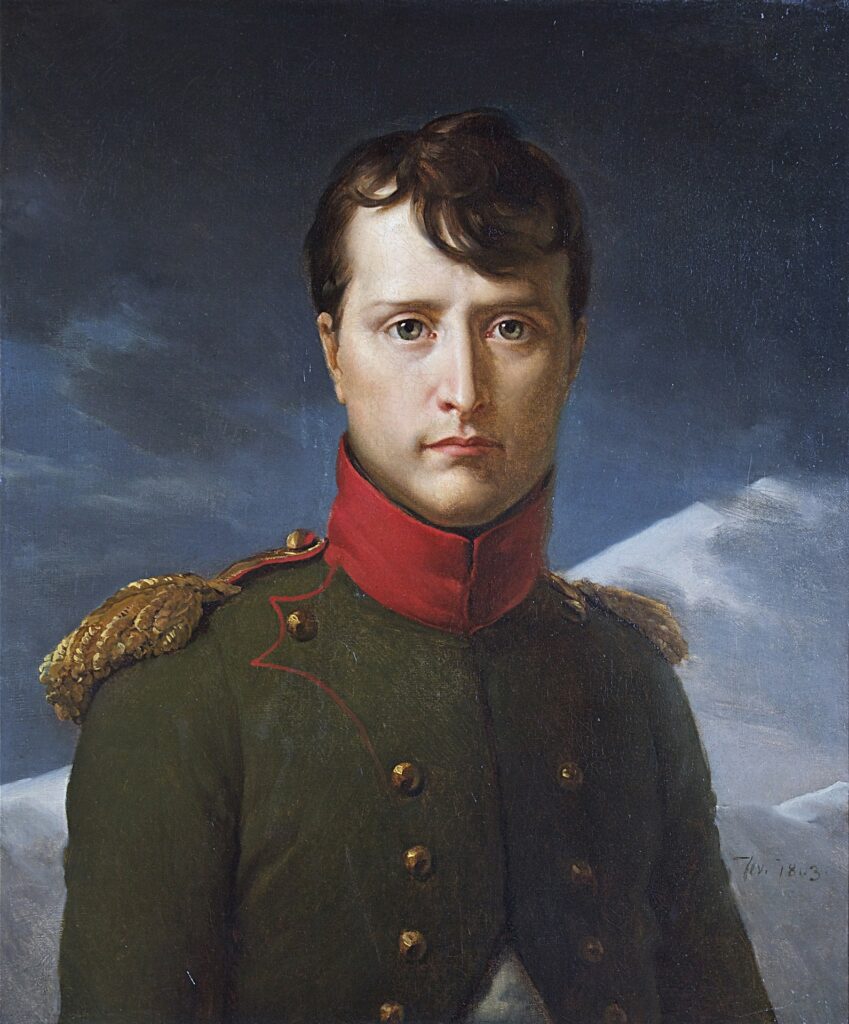
Who was Napoleon Bonaparte?
Napoleon Bonaparte was born in the island of Corsica on 14th August, 1769. It was by chance that he is born known as a French citizen because the island had come in possession of the French from the Republic Genoa in 1768.
Napoleon’s forefathers had migrated to the island in the 16th century. Napoleon’s christening name was Italian. As a boy he hated the French and regarded them as oppressors of the native land and its people.
Family Context
Napoleon was the second one of a lawyer called Charles. His father was against them. At the babyhood age of 9, he was sent to French military school. He was shy, dreamy and always thinks bigger and of revolution.
In 1784 he joined Ecole training he joined the French Army as a second lieutenant. Then he was 16 years of age. His skills and talent, ambition, will-power, brilliant mind. And courage led him to rapid advancement and promotion and at the age of 26 he became a general.
In French Revolution Period
Those years of the French Revolution. it was caused by bad governance and the ever increasing gap between the rich and the poor. It was encouraged by the intellectual awakening and the American Revolution. Masses rebelled against the nobles and clergy. They wrote a new constitution demanding quick reforms.
On July 14, 1789 the people stormed the Bastille Jail in Paris and demanded “Freedom” Equality and Fraternity.” Later monarchy was abolished and the French king Louis XVI and his wife Marie were executed.
There prevailed utter chaos, confusion and struggle for power. Thousands of people lost their heads to the guillotine. Then there emerged Robespierre as a leader and strong man wield dictatorial powers. He was accused of treason and execute in 1794. It was then that Napoleon had his opportunity. He took over the charge of the French army as a young and energetic full of new ideas, reforms and ambition.
Invaded Weak Governments | As a Great Reformer
Napoleon strikes Italy, Switzerland and Egypt and them removed the weak government of France called the Directory in 1799. He became very powerful as well as popular. He made himself first Counsel for the next 15 years.
In 1084 Napoleon declared himself emperor. He defeated Austria and Russia at Austerlitz and the Prussia at Jena in 1806 and again Russia in 1807. Napoleon created new republics ailed to France and ruled his own men. He also enacted Europe wide laws for the governments called the “Continental System”.
Napoleon introduced many good reforms which included better system of education, recognized government and a new national bank. It was his will-power, determination military abilities, brilliant generalship and better battle tactics and strategy that helped him in achieving great victories.
He had very efficient and huge army force as a result of a system of recruit which he had introduced under which all adult men were obliged to serve in the army. He turned the countries of Europe. He wanted to see the surrender of Britain and for this purpose he wanted to Russia to cooperate but the latter refused to oblige and so Napoleon invaded Russia in 1812 which proved really unsuccessful leaving 500,00 French troops dead of cold and hunger. In 1805, Britain had already won a major battle against France at Trafalgar. In the fierce battle the British admiral, Horatio Nelson died, but his victory saved Britain from the French invasion.
The War Nears to End | Last Breath
Napoleon had also tasted the crushing defeat at Leipzig in the hands of the combined European forces in 1813. Finally he was invaded and Napoleon was forced to step down and he was sent into exile to Elba Island. But the very next year he escaped from Elba and returned to France where he was again successful in gaining the support of his countrymen.
A furious battle place in 1815 at Waterloo in Belgium The war ended in final defeat of Napoleon and with it his desire to reconstitute the Empire was dashed for every by the forces of Wellington of Britain and Von Blucher of Prussia. He was exiled to St. Helena, a remote Atlantic island. There he had an isolated life and then he ultimately died of peptic on May 5, 1821.
Littlie Corporeal – Man of Destiny
This Little Corporeal, as he was called many, was the product of the French Revolution. He was called Little Corporeal” because he was not tall and measured just 5 feet and 1 inch height. He also knows as “Man of Destiny” because he rose to such famous heights and became the Emperor of France and also the Master of much of Europe.
Many monarchs and kings called him that “Corsican Ogre” because he dethroned them. Many others similar thoughts of him as a monster. Still for many others he was a great reformer. However, all the friends and the foes alike agreed on this fact that Napoleon I, the emperor of France was one of the greatest military generals that the world has ever seen.

